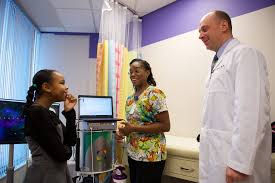
Bend, Oregon, is a city located west the Cascade Mountains. The population here is approximately 100,000. The city is located close to Sisters and Bend ski resorts and has a wide range of recreational activities. Bend can help you navigate assisted living. If you're looking for the best in-home care services in the region, A Place for Mom can help. It's also a great resource for older adults in Bend and other Central Oregon towns, so don't hesitate to contact them for more information.
Evergreen In-Home Care Services is a prominent provider of senior care. They have been in business over 30 years and provide a wide range of services including companionship, respite and home health care. They are one of the few providers that provide Alzheimer's care in the state. It boasts one the largest networks in the country of certified caregivers. Given the city's high population of seniors, the company can provide excellent in-home care services.
Evergreen In-Home Care Services provides other services for residents of Bend and Central Oregon, in addition to its award-winning in-home caregiver services. For instance, the company provides free rides to and from the medical facilities of the Bend-Oregon Regional Medical Center, which is located about seven miles from the city center. This is great for seniors living alone or with loved ones with Alzheimer's. Evergreen In-Home Care Services, a well-respected company, is transparent about their business practices.
Evergreen In-Home's in-home care services are outstanding. They have been a member with the Better Business Bureau for more than 20 years, and enjoy a stellar reputation. They also have an exemplary customer service department, and are known to treat their employees like family.

FAQ
Who owns the healthcare system?
It all depends on how you view it. Public hospitals might be managed by the government. Private companies may run private hospitals. Or a combination.
What are the primary functions of a healthcare system?
The health care system should offer adequate medical facilities to those who require them, at a reasonable price, and ensure that everyone has access to high-quality services.
This includes providing health care and promoting healthy lifestyles. It also involves providing an equitable distribution of health resources.
What is a healthy system?
Health systems include all aspects related to care, from prevention and rehabilitation to everything in-between. It includes hospitals, pharmacies and community services.
Health systems are adaptive complex systems. They exhibit emergent properties that can't always be predicted just by looking at the individual components.
The complexity of health systems makes them difficult to understand and manage. This is where creativity steps in.
Creativity helps us find solutions to problems we don't know how to solve. We use our imaginations and creativity to develop new ideas.
People with creative thinking skills are vital for the health system. They're always evolving.
Thinkers who are creative can change the way the health system works for the better.
How can I get free health insurance in my area?
You may be eligible to apply for health insurance free of charge if you are. If you are eligible, you might be eligible to Medicaid, Medicare or CHIP, Children's Health Insurance Program(CHIP), Tricare benefits, VA benefits and Federal Employee Health Benefitss (FEHB), military benefits, Indian Health Service benefits (IHS), or another program.
What is the difference of a doctor and physician?
A doctor is an individual who has completed his/her training and is licensed to practice medicine. A physician is a specialist in one type of medicine.
What is a system of health in public health and what does it mean?
The entire process of providing medical services to the population is called Health System. It includes all aspects of service delivery, finance, regulation and education.
Statistics
- Price Increases, Aging Push Sector To 20 Percent Of Economy". (en.wikipedia.org)
- Consuming over 10 percent of [3] (en.wikipedia.org)
- Healthcare Occupations PRINTER-FRIENDLY Employment in healthcare occupations is projected to grow 16 percent from 2020 to 2030, much faster than the average for all occupations, adding about 2.6 million new jobs. (bls.gov)
- Foreign investment in hospitals—up to 70% ownership- has been encouraged as an incentive for privatization. (en.wikipedia.org)
- About 14 percent of Americans have chronic kidney disease. (rasmussen.edu)
External Links
How To
What are the 4 Health Systems
The healthcare system includes hospitals, clinics. Insurance providers. Government agencies. Public health officials.
The goal of this infographic was to provide information to people interested in understanding the US health care system.
These are the key points
-
Annual healthcare spending amounts to $2 trillion, or 17% of GDP. This is nearly twice the amount of the entire defense spending budget.
-
Medical inflation reached 6.6% last year, higher than any other consumer category.
-
Americans spend an average of 9% on their health costs.
-
As of 2014 there were more than 300,000,000 Americans who weren't insured.
-
Although the Affordable Health Care Act (ACA), has been approved by Congress, it hasn't yet been fully implemented. There are still significant gaps in coverage.
-
A majority believe that the ACA must be improved.
-
The US spends more money on healthcare than any other country in the world.
-
Affordable healthcare would lower the overall cost by $2.8 Trillion annually if everyone had it.
-
Medicare, Medicaid, and private insurers cover 56% of all healthcare spending.
-
These are the top three reasons people don’t get insured: Not being able afford it ($25B), not having enough spare time to find insurance ($16.4B), and not knowing anything ($14.7B).
-
There are two types: HMO (health maintenance organisation) and PPO [preferred provider organization].
-
Private insurance covers many services, including doctors and dentists, prescriptions, and physical therapy.
-
Public programs provide hospitalization, inpatient surgery, nursing home care, long-term health care, and preventive services.
-
Medicare, a federal program, provides seniors with health insurance. It pays for hospital stays, skilled nursing facility stays, and home health visits.
-
Medicaid is a joint federal-state program that provides financial assistance for low-income individuals or families who earn too little to qualify for other benefits.